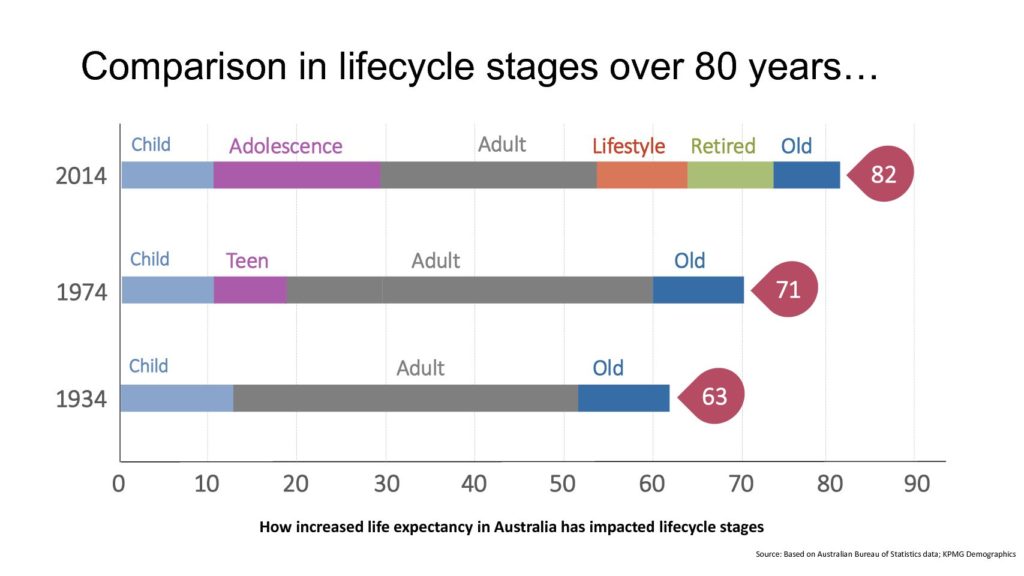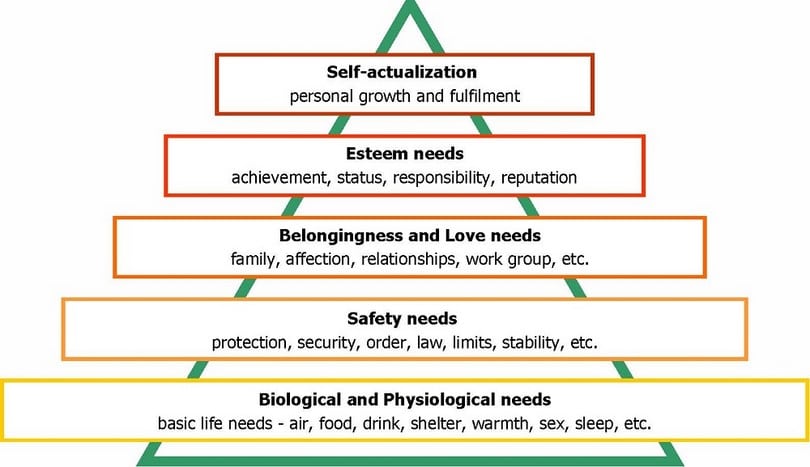Why does life feel hard and so damn busy?
Recently I was talking to a mother of a young lady, frustrated by her daughter’s ‘laziness’.
Let me just say, I would hardly call her daughter lazy, she had graduated from Uni with distinction and landed in a promising career as a biomedical engineer. Two years later, she ‘threw it in’ and became a veterinary nurse and 6 months ago she had relocated abroad to become a barista in Brazil.
I was impressed! Seriously! You can’t underestimate the amount of effort and commitment required to make these changes in such a short period of time.
Being curious, I asked the mother what she foresaw for her daughter’s future back when she graduated from University.
She said “I was over the moon! Her marks opened the door to so many career opportunities. With hard work she could’ve had any prestigious career she wanted. Instead she gave up when work got hard.”
It struck me, by the mother’s language, that she saw her daughter’s achievement as a milestone, a marker on a lifelong path. However, it seems her daughter saw her achievement as ‘reaching her goal’, she might have even made her career a ‘reward’.
So many people make this mistake when setting goals, unconsciously they set themselves up for destination success or destination happiness, where you believe once you reach a certain goal, you will be happy or once you’ve ‘made it’ or viewed as successful, you will be happy, which is rarely the case.
And before we start chiming in with opinions on the individuals in this scenario, it may help to explore external factors that can drive generational values. See this graph, published by Australia’s leading demographer, Bernard Salt, it illustrates how the stages of Australian life-cycles have changed over time.

Science has proven that the brain’s frontal cortex doesn’t reach full maturity until your mid 20’s – imagine the stress of being 15 years old in 1934!
On the other hand, the extended adolescence stage of today provides more time to ‘find yourself’ but the reduced adult stage certainly presents its fair share of stress. You see it everywhere, people juggling raising children, gaining financial security and asset accumulation to have any form of a lifestyle stage.
So, is it fair to say in the prior mother / daughter scenario, the mother assumed her daughter was already in her adult stage, yet the daughter was possibly still in her adolescence stage – exploring who she was, what motivated her, what she stood for? Her career choices show she wanted to slow down and reduce pressure, maybe to understand who she was as a person.
Side note – seeing the moment of realisation on mum’s face will stay with me forever! Y
I found myself re-watching this fantastic clip of Tom Bilyeu interviewing Simon Sinek on Millennials & Laziness, (the prompt for me writing this article actually).
In the first category of PARENTS, he talks about parents over compensating their children with praise like “you’re special” and “you can do anything you put your mind to”.
When you look at prior generations and the stages of their lifecycle you can easily see, there is distinctive break at legal age 18 – going from a teen to an adult. There was very little time for self-discovery, that was meant to occur during teen years with a mind still under development. Plus, the world they grew up in had greater class distinction, I’m not strictly referring to the labels of ‘lower’, ‘middle’ and ‘higher’, but the expectations that came within each class. A male born into poverty was statistically more likely to become a blue-collar worker at best, a criminal at worst. In my case, I was more statistically likely to become a young single mother with children to different fathers. The cycle of life in repeat mode was more prevalent. That’s not to say that there weren’t anomalies or outliers (as statisticians like to say), where people, like myself, would break the cycle and make a different life than their parents, but getting access to their stories was limited. However, rapid leaps in technology over the last 30 years has changed this. Enter the Internet, Facebook and any other searchable information warehouse. You can find inspiration almost anywhere. Stories of people doing absolutely amazing things. This brought hope to parents, knowing their children could have limitless opportunities – ‘the world is your oyster’ mentality and started planting that mindset seed early.
Enter the ‘helicopter parent’, where instead of setting boundaries, (fear of imposing limits) and teaching children to navigate them in order to expand them when they’re ready/ confident, parents would literally remove any obstacle for their children – clear the pathway my amazingness is coming through. We’re clearly seeing that this approach did little to develop emotional intelligence and resilience in our children, and as a result, life is not AMAZZINGG for them! They are not all at the top of the echelon successful! They are not ‘kicking goals’ every minute of every day. Yet to them, it looks like others might be! Social media has created life goals based on other people’s “highlights reels” and we’re all suffering “FOMO”. We wonder why bullying has become such an epidemic – technology has allowed it to literally follow us into our homes and instead of being AMAAZZIINNNGG!! we’re disappointed, with higher recorded levels of stress, anxiety and depression than prior generations.
Here’s some stats for those who love numbers;
- 60% of children have experienced some form of anxiety by the time they are 5yrs old. WT?? Yes, 5 years old!
- 75% of mental illness has its onset before age 24.
- 45% of Australian adults will experience a mental health condition in their lifetime.
- 1 in 5 Australians suffer from a mental illness in any one given year.
- an avg 8 people per day, in Australia, suicide.
Please do not think that I’m laying the above at parent’s feet, let’s continue through the other factors.
Earlier, I highlighted a MAJOR tick for technological advancements – readily available information. Yeayah! But with advancements come disadvantages. On with the TECHNOLOGY category.
I’m sure everyone by now is aware of the physical impacts. There’s documented links between phones and tumours. Not to go all conspiracy theory on you all but over the past decade you’d be hard pressed to find a user manual that doesn’t include such warnings, in fine print of course.
Then there’s the more readily accepted risk that high exposure to backlit devices (hello blue light) stimulates the brain. Hmm, is this why device use (phone or TV) before bed can interrupt sleep patterns and impact quality of sleep?
Then there are the sociological impacts.
When I say facetime, I’m not talking about the app, I mean IRL in front of a real person, eye to eye contact. Where has it gone? Kids are going home from school to get online and ‘hangout’, people are sitting opposite each other in social settings like restaurants, heads buried in their device. The scariest one I used to see, regularly, people walking the busy city streets in peak time, head down, phone in hand. Look up people, there are cars and buses about!! I take that back, texting while driving has to top the list!
Why are our phones so important, yes I get it, technology allows us to be ‘on call’ 24/7 but do we really need to check our phones at the exact moment it beeps? And yes, constantly checking your phone is now a ‘recognised’ addiction.
But back to the point, for humane society to exist and function we need to inter relate – recognising social cues, reading body language and facial expressions are all part of it. And if you don’t develop this skill while you’re young, when it comes time to go out into your community, how do you recognise your tribe?
The third category referenced in the clip, IMPATIENCE. Personally, I love getting my hands on things when I need them – information is at the top of my list, but I do love a bit of online shopping and binge-watching NETFLIX! Sorry, not sorry.
But could this ‘impatient’ mindset be a result of consumerism based on technological advancements?
It’s fair to say better technology / automation has decreased turnaround times for, let’s call them ‘products’, to the market.
The question is – was this improvement driven out of meeting consumer demand or was the change in expectation a by-product of a greater agenda – productivity gains for profit increase.
Australia is increasingly following America’s Service Culture – I request, you deliver – yesterday!! (try that on a tropical island!! Lol)
But the question remains – have we become impatient, driven by instant gratification or have we just adjusted our expectations based on what’s on offer.
My grandparents bought their first home and waited 3 years to save the money to get carpet installed – no crap! and they were first in their street to do so. When I got my first car, it was a bomb – $1000, I blew the motor within the first year and had to get a reco one installed.
But if I or my grandparents were sold fast money (can you hear the ad, just nimble it) we may also have got bought what we wanted straight away. Or in the instance of a fulfilling career, relationship etc, if we were told all our lives – you can be or have anything you want, why wouldn’t you work out what you want and aim for that target as quickly as possible.
The forth category of Environment is the one I find most interesting, not that I don’t believe environmental factors have an impact on a person’s mentality, but in this interview Simon speaks specifically about Corporates, so I can only assume this interview had a specific target audience.
I think it’s fair to say that not all young people end up in corporate careers, yet the remaining youth are not immune to the laziness label and still can find life hard and unsatisfying. I mentor Year 9 & 10 students who are yet to determine their career choices, yet all face similar issues, so landing the responsibility for change at Corporates feet, to me, is not a holistic solution. But let’s just run with the suggestion regardless.
I worked in HR for more than 20 years for a massive corporate with more than 40k employees. The company had a strong cultural shift agenda where personal development & mentoring, particularly for graduates and promising future leaders, was a main pillar.
Ok, I hear you say – ‘please translate’ –
I managed young people / millennials under the company’s graduate program. The program was highly revered, the strategic input and cost associated was extraordinary, yet when graduates opened up, outside of formal feedback channels, they said they felt they weren’t given enough opportunity to excel during rotation and were often disillusioned about their future prospects.
In a nutshell, the program missed the mark because it wasn’t customised to their individual strengths.
Given statistically, and witnessed many times during the program, people stay in jobs / roles for an average of 2 years before moving on, is it really in a corporate’s best interest to invest infinite time and money into leading employee programs? Is this not a gross over capitalisation?
Let me be clear, I’m not totally letting corporates off the hook, I believe they can take a greater social responsibility.
The money-making end of town have certainly learnt how to manipulate the social norms for marketing / sales purposes. Take a moment and think about how many times in one day you are pushed a product or lifestyle, at random like billboards or magazines covers, or targeted like those annoying pops up on your phone or computer. You’d be easily forgiven for thinking there’s a perfect life; job or body you must have to be accepted. An ongoing list of life’s must haves you must own, and if you don’t have these things bmmm bmmm, somehow you’re a failure.
When will we live in a society where success is being measured not by what people have, but what the kind of person they are? Corporates play in this space, along with media and politicians of course – all markers of your environment.
How many other different environments do you operate in? Count them.
Work (corporate or not), family, school (yours or your child’s), community – social or sporting clubs.
So, I ask honestly, is it in your best interest to allow your environment to govern your success, your wellbeing & self-esteem, to cultivate who you become?
What’s the solution I hear you ask?
How do we make an impact in this world and balance everything life throws at us??
Well, the first thing I’d advise is to stop looking outside of yourself – the answers you ever need about YOU are inside of YOU.
Maybe you’ve been on the rat wheel for so long, you haven’t checked in with yourself to see whether you’re still meeting your needs or maybe you’ve never actually looked at your needs.

If you love a good model, here it is, but really all you need to know is that, as humans, meeting our needs gives the best probability for fulfillment, but how you meet those needs is totally your life story.
Get to know your story, see how many needs you have covered? How do you meet your needs – do your actions serve you? What are your gaps – how can you close the gaps?
Go for it!
You can go all in and meditate to quieten the monkey mind / filter out all the ‘white noise’, use mindfulness techniques, or just try ‘unplugging’ with some concerted effort to clear your schedule and mind to put pen to paper for a short period of time.
An excerpt on mindfulness, in case you’re unfamiliar
With Buddhist origins dating back over 2.5 centuries, mindfulness is the awareness that arises through “paying attention in a particular way: on purpose, in the present moment, and nonjudgmentally”
It requires both the ability to anchor one’s attention on what is occurring, and the ability to intentionally switch attention from one aspect of the experience to another. Using specifically, an attitude of curiosity, openness, and acceptance.
With repeated training in mindfulness meditation, individuals will eventually learn to be less reactive and judgmental toward their experiences, and more able to recognize, and break free from, habitual and maladaptive patterns of thinking and behaviour.
Western culture embraced the practise of Mindfulness in the 70’s and is now a highly recognised treatment in medicine and psychology.
– US National Institute of Health/ncbi.nlm.nih/PMC3679190/June 2013
To those who naturally resist this process, who are too busy, can’t sit still or are uncomfortable with silence, I say – lean into your discomfort – it’s a learning/ growth space.
Don’t get me wrong, I’m not suggesting you take on more activity or add more stress to your busy life, but I am saying that once you identify the things that have a direct positive impact on your fulfilment you can learn to prioritise, and if I can add one more thing in closing it would be this….
be brave, be healthy, be kind, be YOU!
Brave – when was the last time you stepped out of your comfort zone. Don’t be scared of mistakes – in every miss-take is the chance to learn and try again. Don’t give other people permission to negatively impact you – their actions / words are a reflection of them.
Healthy – you can go to the gym every day, eat all the right foods, but this caters to the physical aspect of healthy MIND AND body. How is your perspective/ outlook in life? Are you ALWAYS up or ALWAYS down? There’s a whole range of emotions to experience but as MR Miyagi from The Karate Kid said – “must have balance.”
Kind – If connection is the glue for humanity – why shouldn’t we be kind. EVERY person is dealing with their own reality, including you! Show empathy, even to yourself. Don’t let your worst enemy sit between your own ears.


